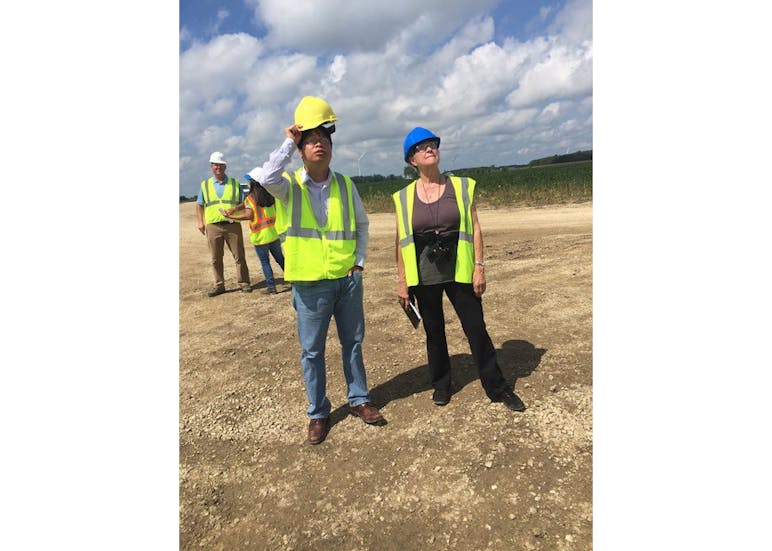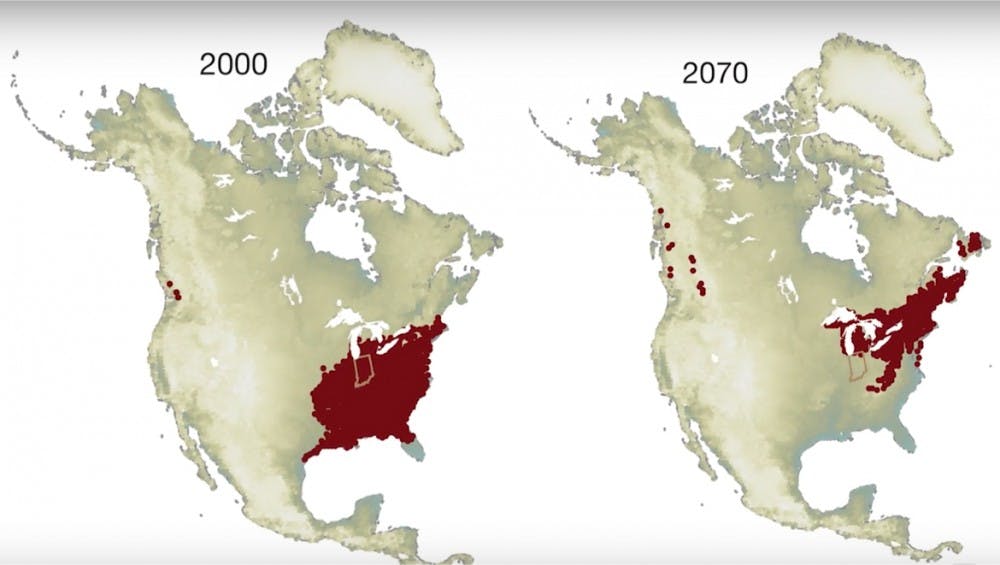One of IU’s three Grand Challenges in research is investigating Indiana’s possible future with increased lyme disease and inability to produce corn due to climate change.
The mission of this Grand Challenge is not to uncover the causes of climate change but to prepare for and adapt to these changes as they arise, Vice Provost for Research Rick Van Kooten said.
He said IU’s science departments are working with the Media School to gather and release information regarding climate change specific to Indiana to communities, allowing them to take measures to prepare for these effects.
Media School Dean James Shanahan said it is important to know how the changes will affect agriculture, health and rainfall.
“You can never fully predict what your environment is going to look like when it starts changing,” Shanahan said.
Van Kooten said there will be 12 positions hired in subject areas ranging among science, law, media and history. The Grand Challenge is in the hiring stage now. He said the Office of the Vice Provost for Research is ensuring lab space and contributing to start-up costs for labs, which can cost up to $1-2 million to set up.

The study is keeping political viewpoints out of the research, Van Kooten said.
Research has shown there is a risk of Indiana’s climate looking more like the warmer, drier climate of Texas in the future, and this is a big concern, Shanahan said. He said Indiana needs to prepare to be able to grow rice or some other staple that would grow better in the drier, warmer climate.
“Our climate wouldn’t be able to grow corn anymore,” Shanahan said. “That’s a very realistic possibility.”
The risk of more disease-carrying insects with climate change is also prevalent, as the milder winters would not kill them off, Shanahan said. Prior research has shown different types of disease-carrying insects might also be introduced and start to thrive with the different climate.
“We know changes are going to come,” Shanahan said. “How responsive can we be?”
However, Shanahan said a large part of this Grand Challenge focuses on communication. He said it is important that the public have access to information that will allow individual communities reach their own solutions.
There is a lot of information already out there about the results of climate change, Shanahan said, but the goal of the Grand Challenge is to narrow it down, communicate these issues to the public and work toward solutions.
He said the Media School has partnered with many community leaders and businesses around the state, and the information they compile will be passed from them as news releases to these partners. From there they will go out to the public.
He said the goal is to facilitate ideas within communities to prepare for the changing environment.
“We want to make sure those tools are more available to those who are using it,” Shanahan said.
Shanahan said the project is just starting and is looking for people to work on certain areas. Some areas include researching tick distribution and how much land is being used compared to the amount of green space.




